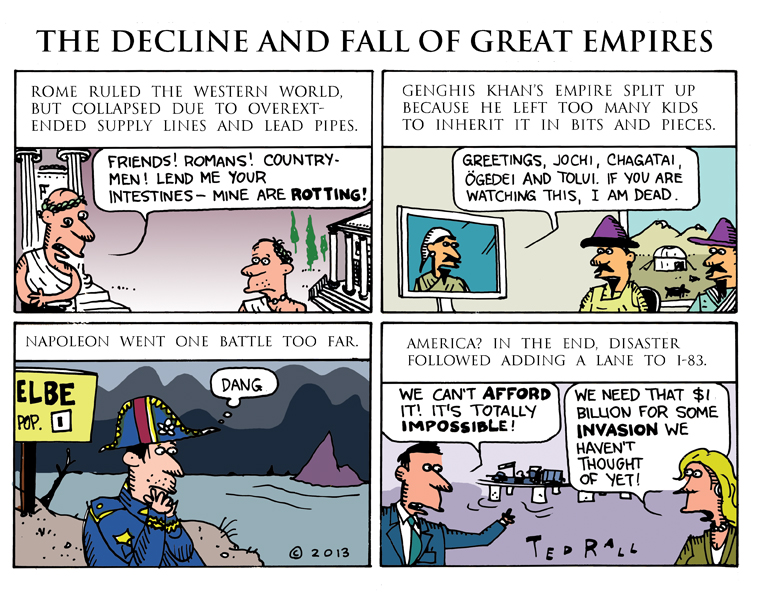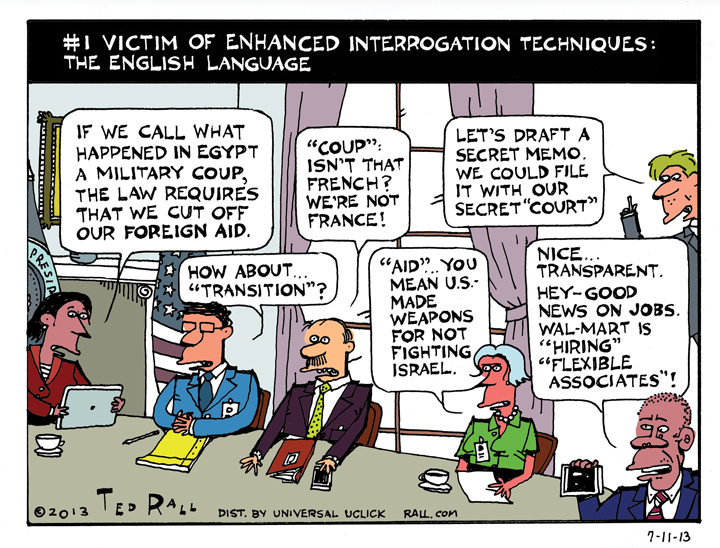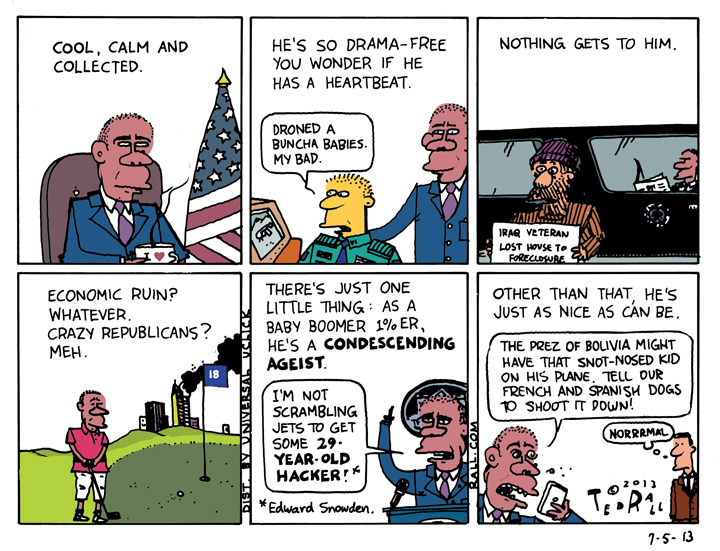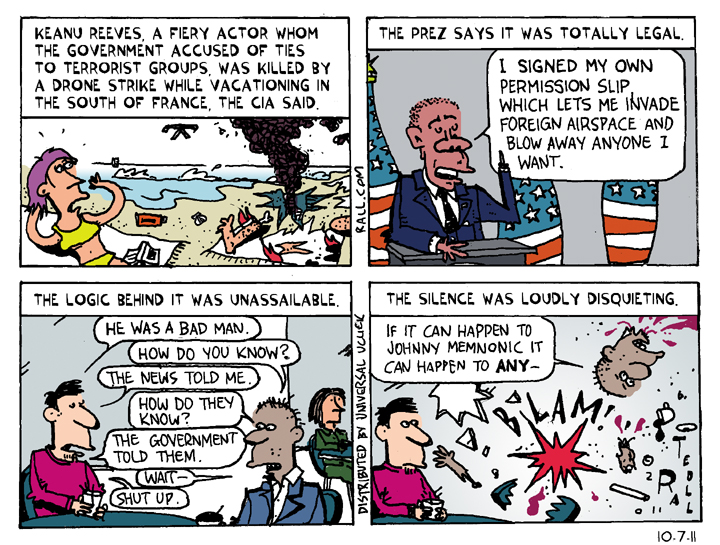This cartoon is for The Patriot-News in Harrisburg, Pennsylvania.
Experts say there’s absolutely no way anyone can scrape up the $1 billion it would cost to fix the endemic congestion of traffic on Interstate 83 outside Harrisburg. Yet there’s always money for wars.




